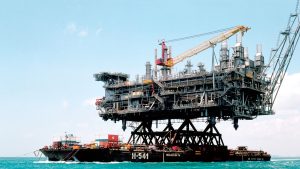A PHILIPPINE senator on Thursday pushed lawmakers to ensure a competitive bidding process and safeguards against monopolies in the energy sector as a measure developing the country’s natural gas industry gains ground in Congress.
“Competitive selection process allows consumers to get the best rates,” Senate Deputy Minority Floor Leader Ana Theresia N. Hontiveros-Baraquel said in a statement. “Without it, we risk paying significantly more for electricity than necessary.”
The Senate on Monday approved on third and final reading Senate Bill No. 2793, the proposed Philippine Natural Gas Industry Development Act, which tasks the Department of Energy to oversee the development of the downstream natural gas industry.
The House of Representatives, which passed its version of the bill in August last year, moved to adopt the Senate’s version during Wednesday’s session.
Manila is under pressure to find other sources of indigenous energy with the imminent depletion of the Malampaya gas field.
Malampaya supplies power plants accounting for a fifth of all power generated in the Philippines. It is expected to run out of easily recoverable gas by 2027.
Natural gas emits less carbon compared to other fossil fuels, such as coal. The International Energy Agency said natural gas has a “limited role” as a transition fuel toward renewables.
The government is aiming to raise the share of renewable energy in the country’s energy mix to 35% by 2030 and to 50% by 2040. The country’s renewable energy share stood at 22%, while coal accounted for over 60%.
“Affordable electricity must remain a priority, and we cannot afford to abandon safeguards that protect consumers and ensure a fair market,” Ms. Hontiveros-Baraquel said.
Under the bill, the Energy Regulatory Commission (ERC) is tasked with keeping track of the government’s share of revenue related to the production of indigenous natural gas sold to power plants.
Downstream natural gas industry projects, as certified by the Department of Energy, will also be entitled to a value-added tax exemption on the purchase and sale of indigenous gas attributed to aggregated fuel, as authorized by the ERC.
Senators Sherwin T. Gatchalian, Aquilino L. Pimentel III, and Ms. Hontiveros-Baraquel had voted against the measure since it lacked safeguards and protections for consumers against high power costs.
In April, Philippine President Ferdinand R. Marcos, Jr. said his government is looking into exploring gas reserves in nonconflict areas within the country’s exclusive economic zone in the South China Sea in a bid to expand its energy and boost the country power generation capabilities.
“We must be vigilant in ensuring that our energy policies do not repeat mistakes of the past: of letting sister companies transact with each other as has happened in the choice of electricity suppliers by distribution utilities, the scope for ERC intervention in such cases,” Ms. Hontiveros-Baraquel said. — John Victor D. Ordoñez

